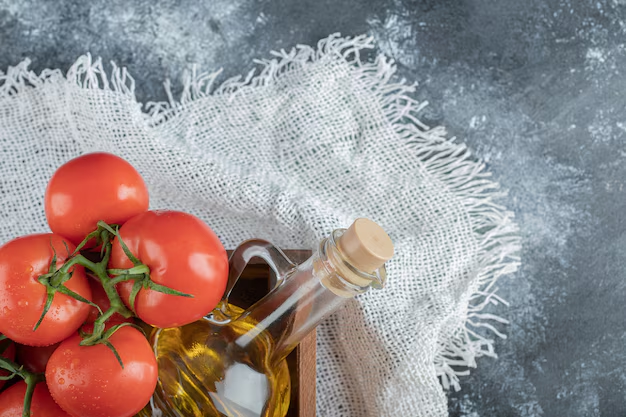Should You Refrigerate Ketchup After Opening? What You Need to Know
When it comes to kitchen debates, few are as enduring as the question: Should ketchup be refrigerated after opening? Some argue that it belongs in the fridge, while others insist that ketchup is perfectly fine at room temperature. Let’s dive into the topic, explore different angles, and figure out what’s best for your ketchup storage.
The Great Ketchup Debate
Ketchup, a beloved condiment made primarily of tomatoes, vinegar, sugar, and spices, is a staple in many households. But after you pop the lid for the first time, should you stash it in the fridge or leave it on the counter?
Room Temperature vs. Refrigeration
Room Temperature: Many argue that given ketchup’s high vinegar content and acidity, it's perfectly safe at room temperature. Before refrigeration was common, this approach worked for many households. In fact, restaurants typically store large quantities of ketchup at room temperature without problems.
Refrigeration: Conversely, proponents of refrigerating argue that chilling ketchup preserves its quality and taste for longer, preventing spoilage and microbial growth. Upon opening, the clock starts ticking on your ketchup’s shelf life, and keeping it cold can slow down this process.
Shelf Life of Ketchup
Understanding the shelf life of ketchup is essential to making an informed decision about its storage.
How Long Does Ketchup Last?
Unopened Ketchup: When unopened, ketchup can last for a long time in your pantry, often a year or more past the printed expiration date. The sealed environment keeps it safe from external contaminants.
Opened Ketchup: Once opened, storing it in the refrigerator might extend its lifespan to about six months or even longer. However, leaving it on the counter will likely reduce this time, making it wise to check for signs of spoilage.
Signs of Spoilage
No one wants to drizzle spoiled ketchup over their favorite dish, so it's vital to recognize when it might have gone bad. Look out for:
- Off Smell or Taste: If ketchup smells or tastes funky, it’s a sign it’s time to toss it.
- Color Changes: While ketchup naturally darkens over time, dramatic changes in color can indicate spoilage.
- Mold: Any sight of mold is a definitive sign that your ketchup is no longer safe to consume.
Why Acid Matters
The secret to ketchup's natural durability lies in its acid content. Vinegar provides an acidic environment that discourages bacteria and mold from flourishing. This is why many people feel comfortable keeping it out in the open.
The Role of Vinegar
Vinegar isn't just for tanginess—it's a key preservative. The acidity level of ketchup falls around 3.5, making it inhospitable for many bacteria. This acidity level is pivotal in determining why ketchup can last so long outside the fridge, even once opened.
Tradeoffs to Consider
While acidity helps, other ingredients like sugar can encourage microbial growth once the bottle is opened. Each household may have different storage needs based on climate, use frequency, and personal taste preferences.
Expert Insights and Consumer Trends
Food Safety Experts: Many food safety authorities suggest refrigerating ketchup post-open to maximize quality and safety. They argue that while an unspoiled open bottle stored at room temperature can be safe, the taste might degrade, making refrigeration the better option for preserving the ketchup’s optimum flavor.
Consumer Preferences: Trends show a division among consumers. Some prefer the rich texture and flavor of room-temperature ketchup. Others prioritize safety and taste preservation through refrigeration.
Embracing the Best of Both Worlds
You can consider a hybrid approach based on usage and preference. If your family or guests prefer their ketchup room temperature but you worry about spoilage, pour a portion into a small container to keep on the table, while the main bottle stays refrigerated.
Ketchup Storage Tips
Here are a few practical tips to balance taste and safety effectively:
✔️ Use What You Need: Only keep a small amount at room temperature to ensure it’s used up before it risks spoilage.
📆 Mark Dates: Record the date of opening on your ketchup bottle. This can help you keep track of how long it's been open.
🌡️ Consider Environment: If you live in a particularly hot climate, keeping your ketchup in the fridge might be more critical.
Twist the Cap: Make sure the bottle is sealed tightly after each use to minimize exposure to air and bacteria.
Inspect Regularly: No matter where you store your ketchup, regular checks for signs of spoilage are wise.
Beyond Ketchup: Storing Other Condiments
Ketchup isn’t the only condiment whose storage is debated. Here’s a quick guide to similar household staples:
Mayonnaise
Refrigeration Required: Once open, store mayonnaise in the fridge. It doesn’t have the same acidity levels as ketchup, making it susceptible to spoilage.
Mustard
Room Temperature or Refrigerating: Mustard has a long shelf life because of its acidity. However, refrigerating can help retain its pungency and color.
Soy Sauce
Typically Room Temperature: Soy sauce’s high salt content preserves it effectively, but refrigerating opened bottles can help maintain flavor.
Hot Sauce
Flexible Storage: Like ketchup, hot sauces can often thrive at room temperature due to vinegar. However, refrigeration extends freshness.
The Verdict on Ketchup Storage
Ultimately, the decision to refrigerate or not comes down to balancing food safety, flavor preservation, and convenience. While you can usually leave it out without significant risk, refrigerating your ketchup is a sensible practice, especially if you value zingy, fresh flavors.
Recap: Ketchup Storage Tips
Here’s a visually distinct summary of practical tips for ketchup storage:
- 🗓️ Remember Dates: Note when you open the bottle.
- 🔍 Check Often: Regularly inspect for spoilage indicators.
- 🧂 Keep Cool: When in doubt, refrigerate to err on the side of caution.
- 👪 Prioritize Preferences: Balance household taste and safety priorities.
Whether you choose to refrigerate or keep it on the counter, being informed will help you enjoy ketchup at its best. Enjoy your meals, and may your ketchup always be perfectly preserved to suit your taste!

